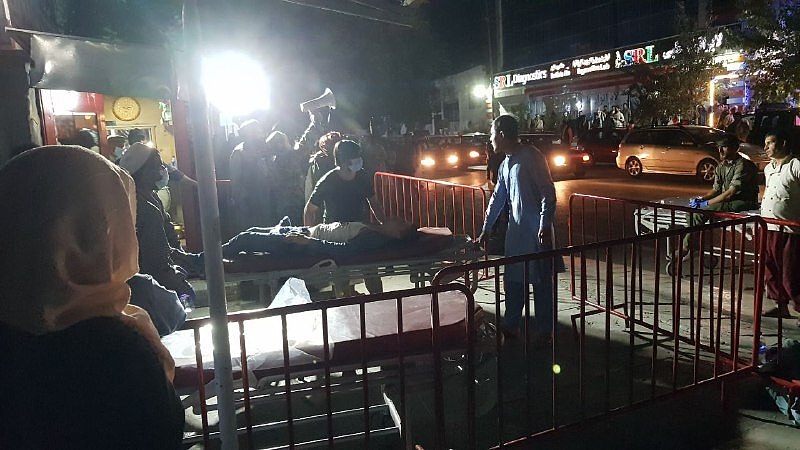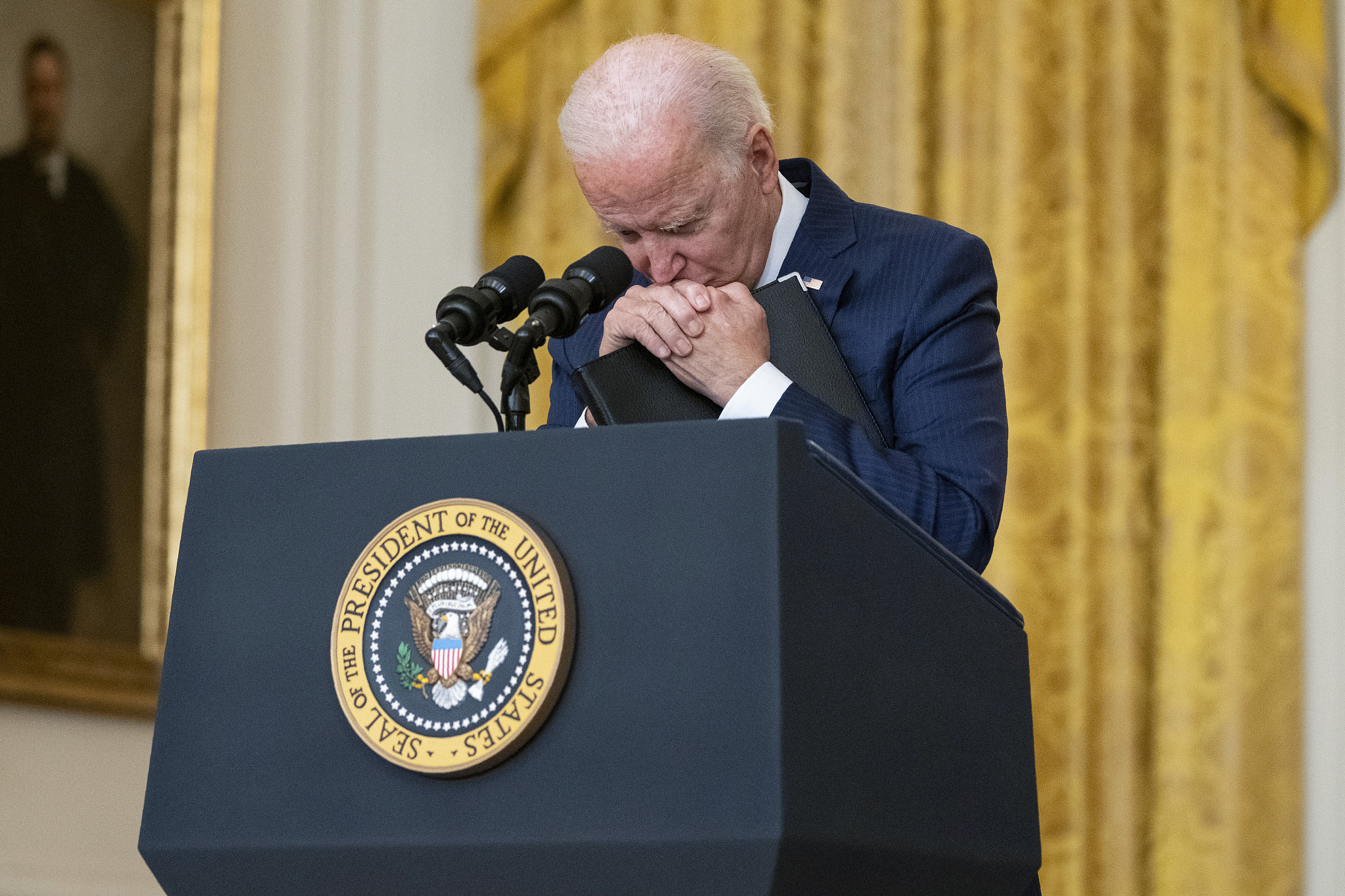
Injured people being carried to a hospital as unspecified number of casualties reported after two explosions outside Hamid Karzai International Airport in Kabul, Afghanistan on August 26, 2021. /CFP
Injured people being carried to a hospital as unspecified number of casualties reported after two explosions outside Hamid Karzai International Airport in Kabul, Afghanistan on August 26, 2021. /CFP
Editor's note: Hamzah Rifaat Hussain is a former visiting fellow at the Stimson Center in Washington and serves as an assistant researcher at the Islamabad Policy Research Institute (IPRI) in Pakistan. The article reflects the author's opinions and not necessarily the views of CGTN.
Terrorism pounced hard on leaving U.S. and allied forces in Kabul as heinous, barbaric suicide attacks at the Hamid Karzai international airport left more than 70 deaths including 13 U.S. service members. The attack came amid an exodus of refugees with bystanders looking to escape the chaos bearing the brunt of the attack.
The timing of the attack once again raises hard questions on the entire approach the U.S. has pursued in rooting out terrorism at the grassroots level in the country. There's little doubt the ISIL-linked ISKP is directly involved and is an embodiment of apocalyptic, transnational and extremist orientations which raise greater strategic risks. If the U.S. grossly failed in its mission to facilitate a lasting political solution to the Afghanistan quagmire, then this horrendous attack in Kabul is a clear sign of its abject failure in weeding out terrorist networks.
U.S. President Joe Biden did tell ISIL terrorists that the U.S. will "hunt them down and make them pay" but had earlier claimed "mission accomplished" by touting Washington's success against Al Qaeda. The reality is that the Islamic State in the Khorasan province in Afghanistan has lingered in the country amid turmoil and foreign intervention and the inability to destroy terrorist cells have allowed them to fester in chaotic environments. This mirrors American involvement in Iraqi and Syrian affairs throughout the course of its military history where regime change and irregular warfare came at the expense of potent militants wreaking havoc in the Levant region under the tutelage of their deceased founder.
A similar legacy risks being left behind in Afghanistan where a 20-year military presence failed to prevent terrorist attacks against Afghan citizens and global populations in general. The countless lives lost show the visible disconnect between blueprints aimed at destroying terrorist groups from the U.S. Congress and an actual understanding of their operational capabilities.

U.S. President Joe Biden pauses as he listens to a question about the bombings at the Kabul airport that killed at least 13 U.S. service members in Washington, Aug. 26, 2021, /CFP
U.S. President Joe Biden pauses as he listens to a question about the bombings at the Kabul airport that killed at least 13 U.S. service members in Washington, Aug. 26, 2021, /CFP
Also, flawed counter terrorism policies have burdensome costs with questions on capacity issues within the Afghan security apparatus in decimating terrorist networks that have flown under the radar. The adversary's ability to gain prowess, logistical support and hybrid warfare tactics have exposed hollow strategies on homegrown Afghan forces. Terrorist networks such as ISKP have been able to wage propaganda warfare and exploit vacuums and fissures across the globe.
Rogue activities empowered elements adamant in challenging the writ of international law and state sovereignty. That means miscalculations cannot be afforded. Yet ISIL's rise is a reminder that gross misinterpretations of the exact capacity of terrorist networks has resulted in the world paying a heavy price. ISIL in Afghanistan was not successfully uprooted by the administrations of Donald Trump or Joe Biden.
The international community is aware of the seriousness of this reality with the UN Secretary General Antonio Guterres expressing alarm at the heinous crimes against humanity. In the U.S., Republican congressmen have been pushing the Biden administration to come up with a better Afghanistan strategy, amid withdrawal efforts that have proven to be an abject failure. With mostly rhetoric and little effort from Washington, it is now up to central Asian regional powers to carry out policies which can uproot terrorism at its very core.
Each attack in Afghanistan could potentially embolden groups such as ISIL to carry out attacks beyond the country's borders.
There should be zero tolerance for terrorism across the globe and Biden's response is apt in this regard. But it is worthwhile that the U.S., with its sketchy record of interventions and terrorist crackdowns, cannot be expected to tackle this quagmire effectively. The international community must band together in pursuing strategies to thwart spillover effects of gruesome attacks for a peaceful world. The U.S. already finds itself in a dilemma with troop withdrawal in Afghanistan, potentially drawing the ire of the Taliban if evacuations go beyond August 31.
The truth is that the entire U.S. counterterrorism strategy was flawed from the outset and an early acknowledgement would help set the record straight.
(If you want to contribute and have specific expertise, please contact us at opinions@cgtn.com.)

